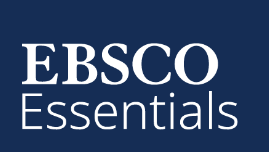Social Emotions in Students’ Learning Behaviors
Keywords:
Emotion, behavior, education, psychology, sociologyAbstract
The objectives of this research were. - 1) to study student learning behaviors related to social emotions, 2) to study the processes and types of social emotions related to student learning behaviors by using qualitative research methods, in-depth interviews and group
discussions. The target group was 32 undergraduate students, professionals and lecturers; obtained by purposive sampling. The research tools were in-depth interviews, group discussions, and content analysis. The fndings showed that social emotions influenced learning behavior, whereas learning behavior influenced social emotions, divided into 3 periods: 1) before school time, including attending class, and preparing before class. 2) during class time, namely taking notes during the lesson while the teacher is teaching, participating in class activities, presenting work in front of the class, asking for discussion, and doing exercises, and 3) after class
follow-up on the work received, assignments, lesson review, research for additional knowledge. The process of social emotions related to learning behavior consisted of situations involving other people, social rules, and norms, attention to targeted situations, situation assessment, and emotional expression. Social emotions in student learning were divided into two groups: self-conscious emotions including pride and embarrassment; moral emotions including shame, envy, gratitude, and empathy
References
Adolps, R. (2003). Cognitive neuroscience of human social behavior. Nature Reviews Neuroscience, 4(3),165-178. doi.org/10.1038/nrn1056.
Akerlof, G. A., & Kranton, R. E. (2002). Identity and schooling: Some lessons for the economics of education. Journal of economic literature, 40(4), 1167-1201.
Aronson, E, T.D., & Sommers, S.R. (2019). Social psychology (10th ed). Pearson. Bagozzi, RP. (2006). The role of social and self-conscious emotions in the regulation of business-to-business relationships in salesperson-customer interactions. Journal of Business and Industrial Marketing, 21(7), 453-457. doi.10.1108/08858620610708948.
Batson, C.D. (2011). Altruism in humans. Oxford University Press.
Frijda, N. H. (1986). The emotions. University of Cambridge. doi: 10.1257/002205102762203585.
Gerring, RL., & Zimbardo, PG. (2005). Psychology and life (17th ed.). Pearson.
Gross, J. J., & Thompson, R. A. (2007). Emotion regulation: Conceptual foundations. In J. J. Gross (Ed.), Handbook of emotion regulation. Guilford Press.
Hareli, S., & Eisikovits, Z. (2006). The role of communicating social emotions accompanying apologies in forgiveness. Motivation and Emotion, 30(3), 189-197. doi.org/10.1007/s11031-006-9025-x.
Hareli, S., & Parkinson, B. (2008). What’s social about social emotions? Journal for the Theory of Social Behaviour, 38(2), 131-156. doi.org/10.1111/j.1468-5914.2008. 00363.x.
Hart, D., & Matsuba, M.K. (2007). The development of pride and moral life. In J. L. Tracy, R. W. Robins, & J.P. Tangney (Eds.), The self-conscious emotions: Theory and research. Guilford Press.
Jessica, L. T., & Richard, W.R. (2007). Self-Conscious emotions: Where self and emotion meet. Guilford Press.
Korpershoek, H., Harms, T., De Boer, H., Van Kuijk, M., & Doolaard, S. (2016). A Meta-Analysis of the effects of classroom management strategies and classroom management programs on students’ academic, behavioral, emotional, and motivational outcomes. Review of Educational Research, 86(3), 643–680. doi.org/10.3102/0034654315626799.
Krungthep Turakij. (2022). Quality of Life-Society. https://www.bangkokbiznews.com/social/829634.
Mascolo, M.J., Fischer, K. W., & Li, J. (2003). The dynamic construction of emotion in development: A component systems approach. In Handbook of affective science. Oxford European Review of Social Psychology.
Phetsombat, P., & Phetsute. A. (2021). The learning behavior of students at Rajamangala University of Technology Thanyaburi. The Journal of Research and Academics, 4(4), 235-244.
Samitthikrai, C. (2013). Consumer behavioral. Chulalongkorn University.
Savitsky, K., Epley, N., & Gilovich, T. (2001). Do other judge us as harshly as we think? overestimating the impact of failures, shortcomings, and mishaps. Journal of Personality and Social Psychology, 81(1), 44-56. doi: 10.1037//0022-3514.81.1.44.
Szanto, K., Dombrovski, A. Y., Sahakian, B. J., Mulsant, B. H., Houck, P. R., Reynolds III, C. F., & Clark, L. (2012). Social emotion recognition, social functioning, and attempted suicide in late-life depression. The American Journal of Geriatric Psychiatry, 20(3), 257-265. doi.org/10.1097/ JGP.0b013e31820eea0c.
Sun, X., Hendrickx, M. M. H. G., Goetz, T., Wubbels, T., & Mainhard, T. (2022). Classroom social environment as student emotions’ Antecedent: Mediating role of achievement goals. Journal of Experimental Education, 90(1), 146-157. https://doi.org/10.1080/00220973.2020.1724851.
Downloads
Published
Issue
Section
License

This work is licensed under a Creative Commons Attribution-NoDerivatives 4.0 International License.





